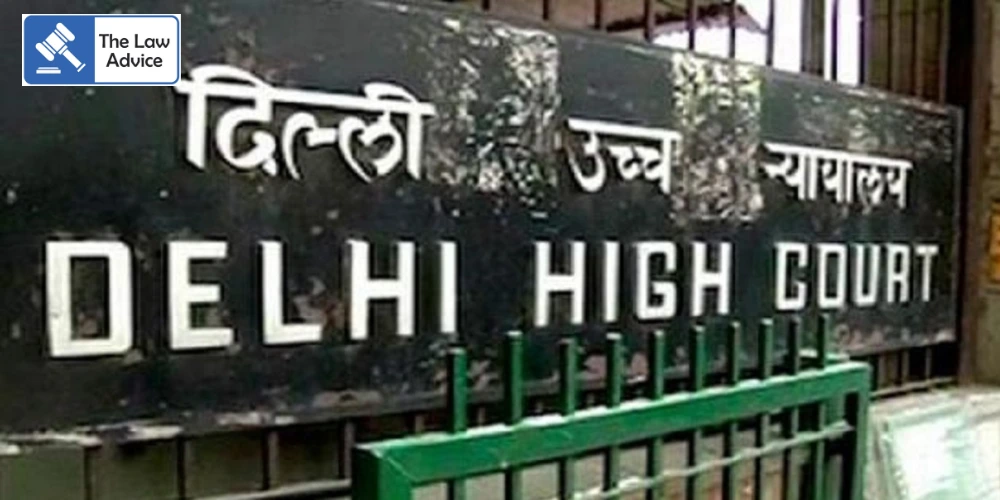The Delhi High Court has clarified a significant point of trademark law—holding that an injunction cannot be granted to restrain a person from using their own name as a trademark, even in cases alleging passing off.
The ruling was delivered by a Division Bench of Justice C. Hari Shankar and Justice Om Prakash Shukla in Vasundhra Jewellers Pvt. Ltd. v. Vasundhara Fashion Jewellery LLP (FAO(OS)(COMM) 232/2023).
The appellant, Vasundhra Jewellers Pvt. Ltd., a company established in 1999, filed a suit against Vasundhara Fashion Jewellery LLP, which commenced operations in 2001. The dispute revolved around the use of the trademark “Vasundhara”, with the appellant claiming exclusive rights over the mark and alleging that the respondent’s use amounted to infringement and passing off.
The respondent, however, argued that the mark “Vasundhara” was nothing more than the first name of its founder, Ms. Vasundhara Mantri, who initially started the business as a sole proprietorship. It further contended that “Vasundhara” is a common Indian name, widely used in families across the country, and no party could claim monopoly or exclusivity over its usage.
A Single Judge of the High Court dismissed the appellant’s claim, noting that the respondent’s adoption of the mark was bona fide and rooted in the personal name of its proprietor. Moreover, the Court found the marks to be dissimilar in appearance and style, and rejected the plea for injunction.
Aggrieved, Vasundhra Jewellers Pvt. Ltd. approached the Division Bench, arguing that Section 35 of the Trade Marks Act, 1999 (which protects the bona fide use of a person’s own name) operates only as a defense to infringement claims, and cannot shield a party in an action for passing off.
The Division Bench rejected the appellant’s interpretation and provided a detailed analysis of Section 35 of the Trade Marks Act, 1999, which states that:
“Nothing in this Act shall entitle the proprietor or a registered user of a registered trademark to interfere with any bona fide use by a person of his own name or that of his place of business, or that of the name or place of business of any of his predecessors in business.”
The Court emphasized that this provision constitutes a statutory exception to all forms of action under the Trade Marks Act. Importantly, it observed that:
“Section 35 states that ‘nothing in this Act’—meaning nothing in the entire Trade Marks Act—would entitle a proprietor or registered user of a trademark to interfere with the bona fide use by another person of his own name or that of his place of business. The proscription operates as an exception to any action which can be taken, and any relief which can be obtained, under the Trade Marks Act.”
Further, the Court referred to Section 135 of the Trade Marks Act, which deals with reliefs available in trademark suits. Section 135(1), in its opening words, makes it clear that its provisions apply to both infringement and passing off actions. This, the Court held, meant that injunction reliefs in passing off suits are also subject to the limitation under Section 35.
Thus, the Bench concluded that the phrase “nothing in this Act” in Section 35 covers all reliefs available under Section 135—including injunctions for both infringement and passing off.
Rejecting the appellant’s plea, the Delhi High Court held:
• Section 35 is a complete statutory defense available to a defendant in both infringement and passing off suits, so long as the use of the name is bona fide.
• A plaintiff cannot restrain another party from using their own name as a trademark, unless such use is clearly mala fide and intended to deceive.
• The respondent’s use of the name “Vasundhara” was genuine, being derived from the personal name of its proprietor, and no case of mala fide adoption was made out.
Accordingly, the Division Bench dismissed the appeal and upheld the Single Judge’s order in favor of Vasundhara Fashion Jewellery LLP.
Key Takeaways from the Ruling
1. Own Name Defense Under Section 35 – Individuals and businesses are entitled to use their own names in trade, and no injunction can restrict such bona fide use.
2. Protection Extends to Passing Off – The defense under Section 35 is not confined to infringement actions but also applies to passing off cases.
3. Section 135 Reliefs Are Subject to Section 35 – Injunctions, damages, or other remedies under Section 135 cannot override the statutory shield provided by Section 35.
4. Common and Generic Names – Courts are cautious about granting exclusivity over common names, especially when tied to bona fide personal use.
5. Balance Between Rights and Fair Use – The ruling ensures that while trademark protection remains strong, it does not unfairly deprive individuals of using their own identity in business.
Appearance of Counsel
• For Appellant: Mr. Sagar Chandra, Mr. Prateek Kumar, Ms. Aarushi Jain, Mr. Yojit Pareek, Ms. Shubhie Wahi, Ms. Sanya Kapoor, Ms. Ankita, Mr. Prassant Kr. Sharma, and Mr. Chetan Charitra.
• For Respondents: Mr. Shuvasish Sen Gupta, Mr. Kumar Vivek Vibhu, Mr. Pawan Maheshwari, and Mr. Bhavesh Garodia.
